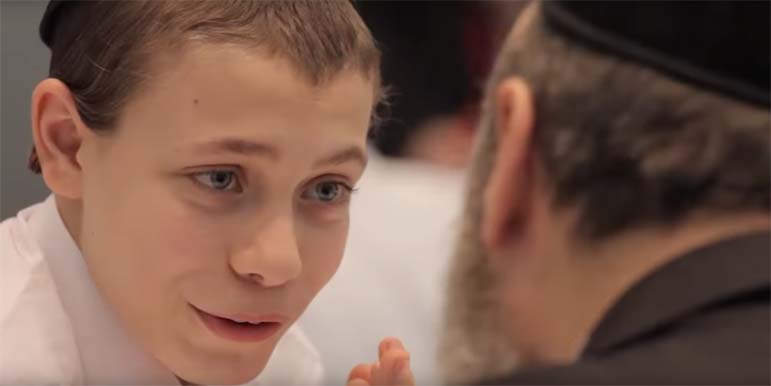
Try embracing a movie producer's profoundly spiritual quest this Sabbath
For 35 years, the movie producer Brian Grazer - who produced films like Apollo 13, Splash and A Beautiful Mind - has conducted what he calls curiosity conversations.
Originally, he sought out people in the entertainment industry for one-hour conversations simply to learn the business from people who were different from him.
Then he realized that in order to really grow, learn and enhance his understanding of the world, he needed to speak to people outside his industry.
He wants to disrupt his point of view and get completely out of the world he lives in. To that end, Grazer has spoken to Jonas Salk, Isaac Asimov, CIA directors, and the world's richest person, simply to understand what life is like in someone else's very different shoes.
He often spent more than a year trying to arrange such meetings and then eventually hired someone called his cultural attache whose only job was to set up these meetings.
In A Curious Mind, he writes: "My strongest sense of curiosity is what I call emotional curiosity: I want to understand what makes people tick: I want to see if I can connect a person's attitude and personality with their work, with their challenges and accomplishments."
There is something profoundly spiritual in Grazer's quest - the desire to know the other.
We all know people who haven't the slightest curiosity about the other; other people are just a platform for getting back to oneself in a complete narcissistic sweep.
If you're frustrated by this dynamic, practice a few curiosity questions on strangers and relatives - moving the spotlight from you to the other:
• Why did you...?
• What interests you about...?
• How did you come to...?
In Hebrew, the word for curiosity - that natural inquisitiveness that mines, explores and discovers - is "sakranus." We have some wonderful examples of curiosity conversations in the Hebrew Bible and in rabbinic literature.
Moses turned during his work day as a shepherd to see a wondrous site: a burning bush whose flames did not consume it. He couldn't stop looking. And when the Divine saw Moses seeing, He realized that this was the leader he was looking for - a person who paused to wonder.
Moses, in effect, had a curiosity conversation with the Almighty.
Perhaps one of the great lyrical reflections on curiosity comes from a psalm of King David in his marvel at the cosmos. "When I consider Your heavens, the work of Your fingers, the moon and the stars, which You have set in place, what is man that You are mindful of him, the son of man that you care for him? You made him a little lower than the heavenly beings and crowned him with glory and honor." (Psalms 8).
Whether you are amazed by the complexity of another person or the intricacies of nature, the summer is a great time to amplify your curiosity. The pace is slower. We spend more time outdoors, exposed to the wonders of nature, and we often spend more time relaxing with friends.
Try a curiosity conversation this Sabbath with people you know well: your kids, your parents, your closest friends.
A few curiosity questions later, a new and improved person may very well emerge before you.
As Eleanor Roosevelt once said: "I think, at a child's birth, if a mother could ask a fairy godmother to endow it with the most useful gift, that gift should be curiosity."
Comment by clicking here.
Dr. Erica Brown is an associate professor at George Washington University and the director of its Mayberg Center for Jewish Education and Leadership. She is the author of eleven books; her forthcoming book is entitled Jonah: The Reluctant Prophet (Koren/OU, 2017). She previously served as the scholar-in-residence at both The Jewish Federation of Greater Washington and the Combined Jewish Philanthropies of Boston. Erica was a Jerusalem Fellow, is a faculty member of the Wexner Foundation, an Avi Chai Fellow, winner of the Ted Farber Professional Excellence Award, and is the recipient of the 2009 Covenant Award for her work in education and the 2012 Bernie Reisman Award (Hornstein Jewish Professional Leadership Program, Brandeis University).



 Contact The Editor
Contact The Editor
 Articles By This Author
Articles By This Author